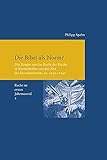Die Bibel als Norm? : das Ringen um das Recht der Kirche in Streitschriften aus der Zeit des Investiturstreits, ca. 1050-1140 / Philipp N. Spahn.
Material type: TextSeries: Studien zur europäischen Rechtsgeschichte ; 335 | Studien zur europäischen Rechtsgeschichte. Recht im ersten Jahrtausend ; 002Publisher: Frankfurt am Main : Vittorio Klostermann, 2022Description: x, 416 pagine ; 24 cmContent type:
TextSeries: Studien zur europäischen Rechtsgeschichte ; 335 | Studien zur europäischen Rechtsgeschichte. Recht im ersten Jahrtausend ; 002Publisher: Frankfurt am Main : Vittorio Klostermann, 2022Description: x, 416 pagine ; 24 cmContent type: - testo (txt)
- senza mediazione (n)
- volume (nc)
- 9783465045441
- 3465045440
- K 446.B5.S63 2022
| Item type | Current library | Call number | Status | Barcode | |
|---|---|---|---|---|---|
 Opera (Magaz.)
Opera (Magaz.)
|
Biblioteca "Angelicum" Pont. Univ. S.Tommaso d'Aquino Temporary Library | K 446.B5.S63 2022 (Browse shelf(Opens below)) | Available | 0030219677 |
Bibliografia (pagine 291-403) e indice.
Tiefgreifende Veränderungen im Umgang mit Texten führten um 1100 zu einer methodengeschichtlich relevanten Wende im Recht. Von dieser sind die biblischen Texte, obschon von der rechtshistorischen Mediävistik weitgehend unbeachtet, nicht ausgenommen. In diese Lücke stößt die Untersuchung. Am Beispiel früher kirchlicher Rechtsliteratur wird aufgezeigt, welche Bedeutung dem Ringen um das rechte Verständnis der biblischen Texte für die Verwissenschaftlichung des kirchlichen Rechts einerseits und der Bibel für das Recht der Kirche andererseits zukam. Unter anderem wurde im Streit um biblische und andere normative Texte die Gewohnheit als zentrale Denkfigur frühmittelalterlichen weltlichen Rechts zugunsten der Wahrheit als Paradigma einer neuen Zeit verdrängt, das keineswegs nur die Kirche und ihr Recht nachhaltig beeinflusste.
Around 1100, profound changes in dealing with texts brought about a methodological-historical turn in law. It proved instrumental in advancing the scientification of ecclesiastical law. Although they have remained largely unnoticed by mediaevalist law history, the biblical texts are not exempt from these changes. This study enters into this gap. Choosing dispute literature as an example, it shows the importance of the struggle for the correct understanding of the biblical texts for the scientification of ecclesiastical law on the one hand and of the Bible for the law of the church on the other hand. Moreover, in the dispute with and about the biblical texts, a turning away from custom as the central figure of thought of early medieval secular law is in the offing. Truth became the paradigm of a new age, exerting a crucial influence on the process of change of the church and its law.


